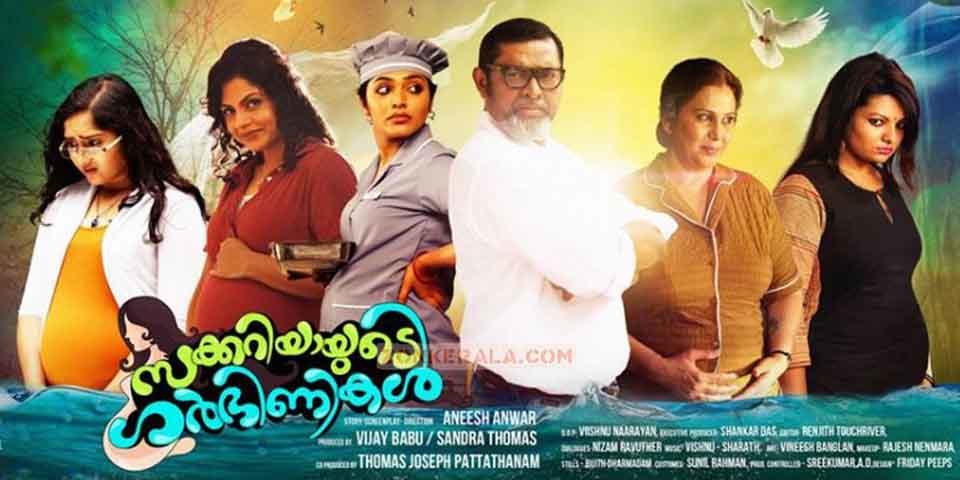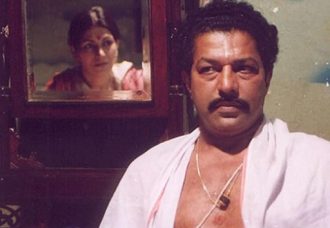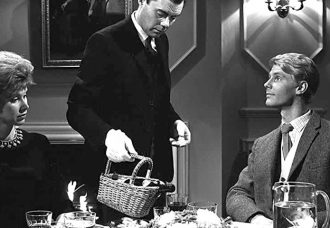Precious to life is a mother’s act of carrying a child in her womb. Zachariyayude Garbhinikal (Zachariah’s Pregnant Women) centers on Dr. Zachariah (Lal), a sensitive, caring gynecologist with no child of his own, and his range of patients. The pains of labor as well as the fear of ostracism are manifested when an artificially inseminated middle aged nun weeps “I haven’t done anything bad” at the feet of the ‘virgin’ Our Lady.
The screenplay, though, isn’t all that clever. It relies on a heavy dosage of dialogues. And does not bother to address the reason why so many married girls in Kerala find it difficult, these days, to conceive.
The idea that a mother will allow her dying child to be treated only by a particular, unavailable, doctor is a little stretched. And a furious young girl, Saira (Sanusha) who barges into the gynecologist’s house kills an intended suspense element when she screams, “Don’t ask me who the father is”; for those few who find it difficult to guess, the answer is revealed within the film through a story written by the late Padmarajan.
Initially, bold and rebellious, Sanusha later sobs like a child, and is frighteningly real when she is taken in for delivery. Wearing a false stomach and faking pregnancy to reap its sympathetic advantages, Rima Kallingal wants to be funny, but isn’t quite; however, she’s delightful as ever, and pulls off the accent of a Northern Kerala Muslim community with ease. Lal has a calm and soothing effect on women in distress, but lacks a sense of urgency in cases that require it.
The photographer, perched on a crane most of the time, has a lot of fun. A close shot of the doctor reclining on a settee zooms out, slowly, past the roof of his house, until the figure is a dot, creating the impression of a camera in the clouds with a telescopic lens. However, though pleasing to the eye, the photography often fails its purpose from the cinematic point of view. With exceptions, it does little towards extracting the best from the actors; and the film is narrated through words, not visuals.
Aneesh Anwar’s woman-centric drama could have been a lot lighter in its tone and deeper with meaning. Despite all its gravity, it attempts to say nothing except, perhaps, that non-sexual impregnation even in an unmarried woman, irrespective of her age, is an act of purity.








